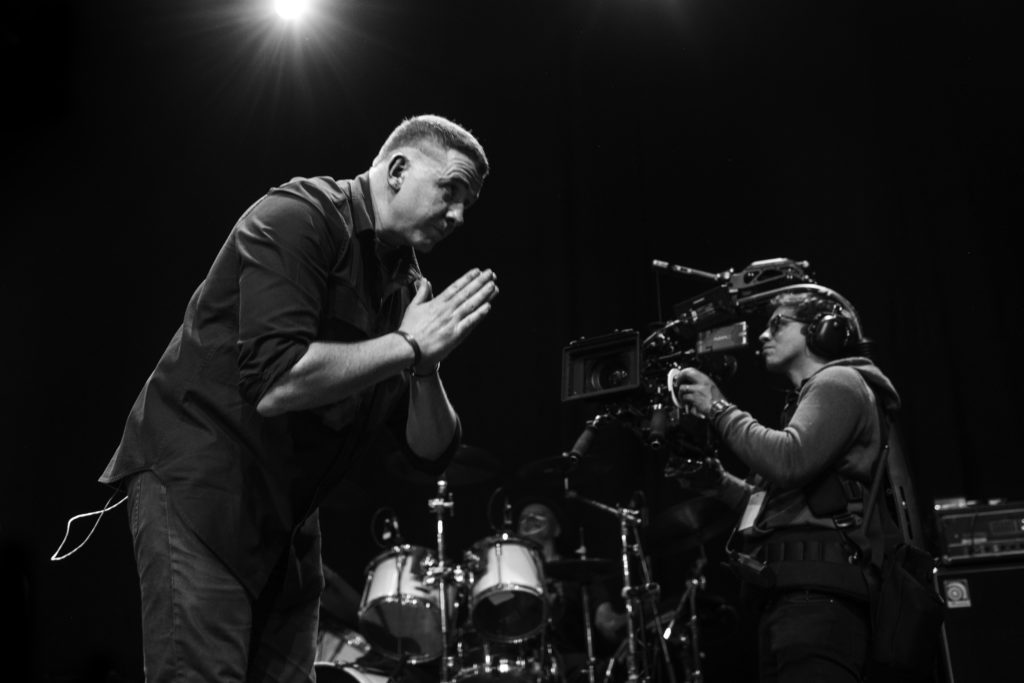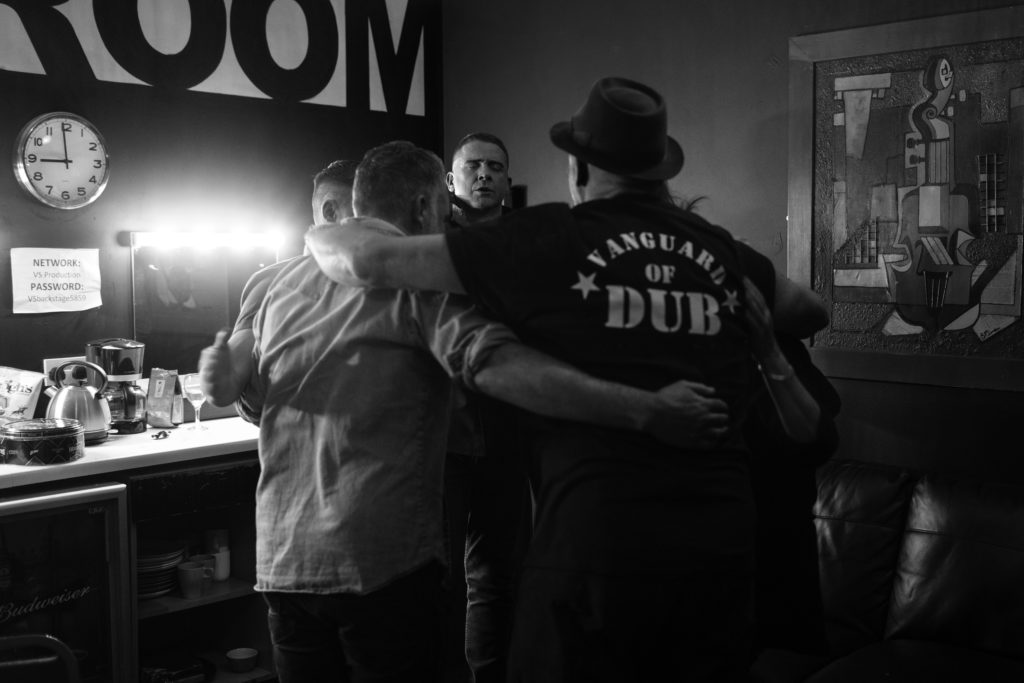THERE has always been an attitude of ‘If you know, you know’ to Damien Dempsey’s Vicar Street shows.
People who have witnessed them understand how rare and incredible a thing they are.
It’s an experience that can’t be fully explained to the uninitiated.
Some might consider a football terrace, when your team won’t stop scoring, a decent analogy.
To the untrained eye, that description may not be a million miles off, but still, it’s not the full picture.
“I always wanted to make people high, without drink or drugs,” explains the voice of Dempsey over a slow, panning shot of the Vicar Street crowd in full, emotional flight.
It was as early as this opening scene, filmed in December 2019, when I sat back in my chair and realised that director Ross Killeen had achieved what I thought nearly impossible.
He had somehow captured it.
The passion, the euphoria, the camaraderie, craic and catharsis, the Almighty Love itself.
This film, however, is not satisfied to stop there. It goes deeper.
Deeper into the heart of not just Dempsey’s songs, but into the world from where those songs are born.
Although the film is painted throughout with the giddy fervour of the Vicar Street faithful chanting beloved Damo-affirmations, such as “I’m never going to let your negative vibes and comments get through to my psyche and cripple me,” this is not the only affirmation we hear.
Nadia, one of four people (including Dempsey himself) whose journey the film embraces, is introduced in a different crowd, with a different affirmation.
The more hushed delivery of Nadia and her fellow residents of Coolmine Ashleigh House reciting their daily affirmations, united against their collective struggles with substance abuse, brings us firmly back to earth, and to the heart of the film.
 Damien Demspey's film Love Yourself Today centres on his Vicar Street gigs
Damien Demspey's film Love Yourself Today centres on his Vicar Street gigsIn a post-screening Q & A with Dempsey and Killeen, Dempsey tells us how his work has always been autobiographical, writing about himself but also, importantly, the people around him who share and influence his world.
With that in mind, how else could a Damien Dempsey documentary/concert film go than to focus in on not just himself, but also the familiar characters who have always occupied his songs?
So, we meet Packy, whose own affirmation comes in the physical form of shadowboxing. Through the hurt and destruction that has happened around him and to him, there he is. Focused, meditative, still swinging.
We learn how Packy witnessed his friend being gunned down right beside him, a moment he also thought would be his last.
A scene unimaginable for anyone. A trauma that must, at times, seem insurmountable.
However, there is a light.
The film later introduces us to Jonathon, a familiar face in Rathmines where he owns and operates Ernesto’s, a café-come-community hub.
Jonathon’s inspirational story shows us that there is life waiting on the other side, after we finally free ourselves from harmful patterns.
It is never easy but it can be done and Jonathon’s life today, filled with family, friends and community reminds us that there is a tomorrow.
This is the core message of Love Yourself Today, that recovery is possible for all of us.
There is no shame in reaching out for help. Most of us will do it in some form at some point in our lives. That there is a light out there in the dark, if we just keeping pressing forward, is as important a message as art can ever hope to deliver.
And then, there are those incredible Vicar Street scenes.
“I was surprised myself. You can’t always see the crowd when the lights are in your eyes in Vicar Street,” said Dempsey.
“My brothers have described to me about what is going on out there, but when I saw the footage, I was surprised.”
Killeen does not simply point a camera at the crowd, he takes us into the belly of it.
We are right there among the faces, united in their own hurt and hope. It feels almost like a glimpse of how a society, often marred by the toxic masculinity that has become more than a buzz-phrase but a diagnosis in recent years, can be.
 Backstage at one of Demspey's gigs
Backstage at one of Demspey's gigsIt is breathtakingly cinematic.
Speaking after the screening, Killeen explained his decision to shoot in black and white:
“They say you lose 10 per cent of your audience when your film is black and white, but we didn’t mind.
“When you shoot in colour, you can be distracted by things like what someone is wearing. “This is more meditative, which is what I wanted for the film.
“We hold on scenery, things like trees blowing in the breeze, a little longer than you would expect because it draws you in further,” he said.
Outside of the music performed by Dempsey and his band live on-stage, the ever-building instrumental score from John Reynolds glues the film together, absolutely enhancing the cinematic, gut-wrenching scope of the film.
We are reminded in the Q & A of how shamefully little Irish films can usually expect to make at the box office.
Neither Dempsey nor Killeen appears fazed by this unfortunate reality, they had a story to tell and that’s what mattered.
That has always been the priority for Dempsey’s art, this film is no different.
The journeys of Nadia, Packy, Jonathon and Damo himself are far from over.
There is always work to do, challenges to face and this film does not attempt to sugar coat any of that.
There is however, a tomorrow.
Recovery is possible. Recovery is real. Recovery is waiting for anyone who wants it.
This is an important film.

